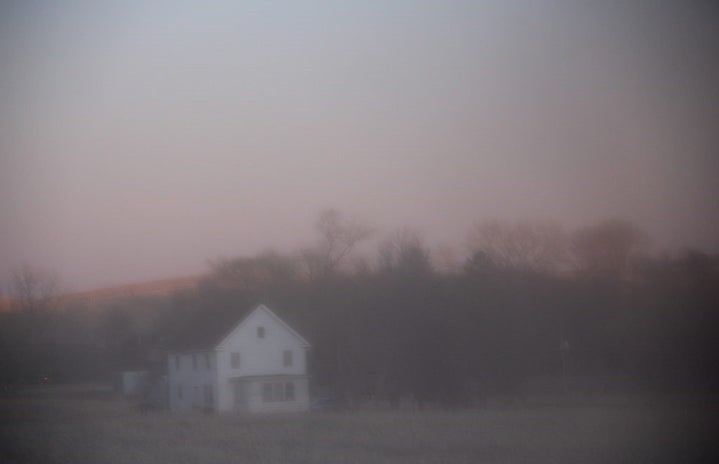At around 9 p.m. on Feb. 3, approximately 50 Norfolk Southern railroad cars containing hazardous materials were derailed and consumed by a fire on the border of Ohio and Pennsylvania, resulting in an ecological disaster for the surrounding area.
Eleven derailed cars contained a spread of hazardous materials, including vinyl chloride, a component in polyvinyl chloride (PVC) pipes and phosgene, a highly toxic gas used as a chemical weapon in World War I. Concern over the uncontrolled burning of these cars resulted in an evacuation of 1,500 residents. To avoid a chemical explosion, officials initiated a controlled release and burn of the vinyl chloride, releasing a plume of thick black smoke over residential areas.
Residents were told conditions were safe to return to their homes on Feb. 8. According to officials, air monitoring did not detect any chemical levels of concern in the area.
After their return home, residents reported rashes, nausea and other symptoms. They fear the symptoms are related to the chemical exposure of their homes and town. Some families are moving out of their homes. East Palestine mayor Trent Conaway has expressed concerns over the town’s air quality, pointing out the experiences of his residents.
About 3,500 small fish have been discovered dead in nearby streams that appear slicked since residents were allowed to return home. A newly filed federal lawsuit claims fish and wildlife are dying up to 20 miles from the derailment site.
The reported ecological effects of the derailment are complicating the lives of East Palestine’s residents. They have looked for air quality tests independent of those conducted by Norfolk Southern and the federal government. Many residents have expressed concerns that those screenings don’t account for the formation of different chemicals during the crash, providing a false sense of security.
Ohio officials have voiced their concerns over the circumstances and impacts of the disaster. In a press conference earlier this month, Ohio Governor Mike DeWine said the fact that the derailed train was not deemed a “highly hazardous material train” was absurd and should be investigated.
On CNN’s “State of the Union,” Senator Sherrod Brown (D-Ohio) said that residents of East Palestine are “right to be skeptical” about the safety of their neighborhoods after such a large-scale event. “This is really the same old story,” he said, pointing out that railroad companies such as Norfolk Southern “don’t invest in safety rules and safety regulations.”
Unions have taken the same tone as the senator, working to draw attention to loosening freight and rail safety regulations in the wake of the disaster. In a letter to the Federal Railroad Administration, the American Federation of Labor and Congress of Industrial Organizations (AFL-CIO) expressed concerns about the tendency of railroad companies to continually put cheaper procedures in place at the expense of safety.
Long-term impacts of the derailment and fires have yet to be discovered. Anxious residents continue to stay away from the area over water, air and soil quality concerns. Gov. DeWine’s office encouraged residents to get their well water tested. The full impact of the chemical release on local animal life is also up in the air. The Ohio Department of Agriculture is testing tissue from a six-week-old beef calf that died on Feb. 11 to determine if it is related to the derailing.
The fallout from the derailment indicates that change may be imminent in railroad industry safety standards and procedures. The Ohio Department of Health opened a health assessment clinic on Feb. 21 for residents with medical concerns related to the derailment. Registered nurses, mental health specialists, and toxicologists will be available to assist residents with any concerns.


